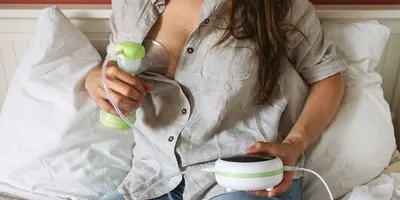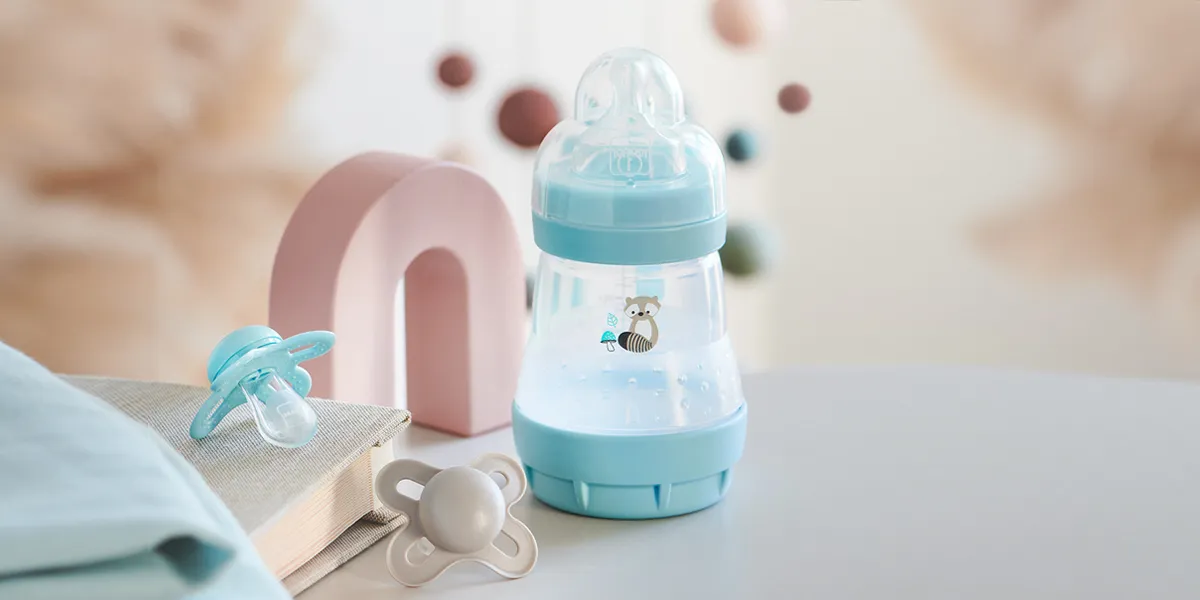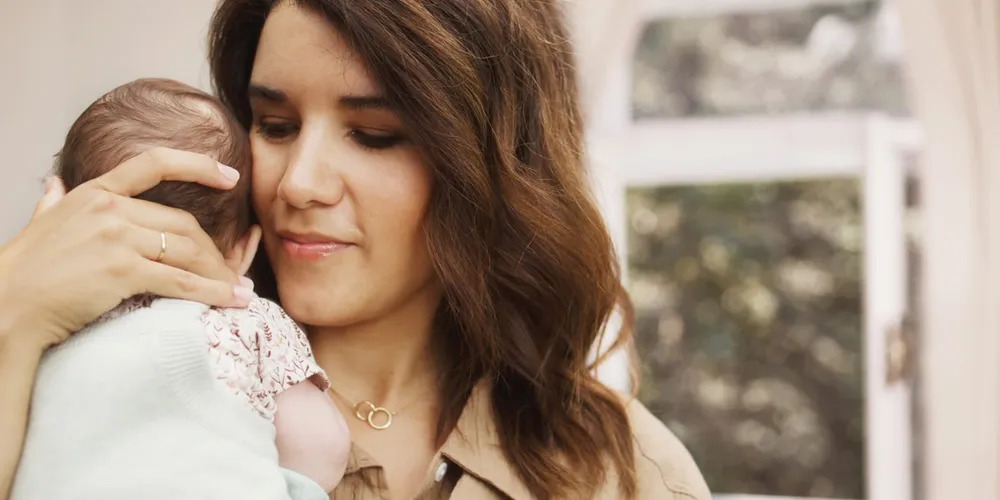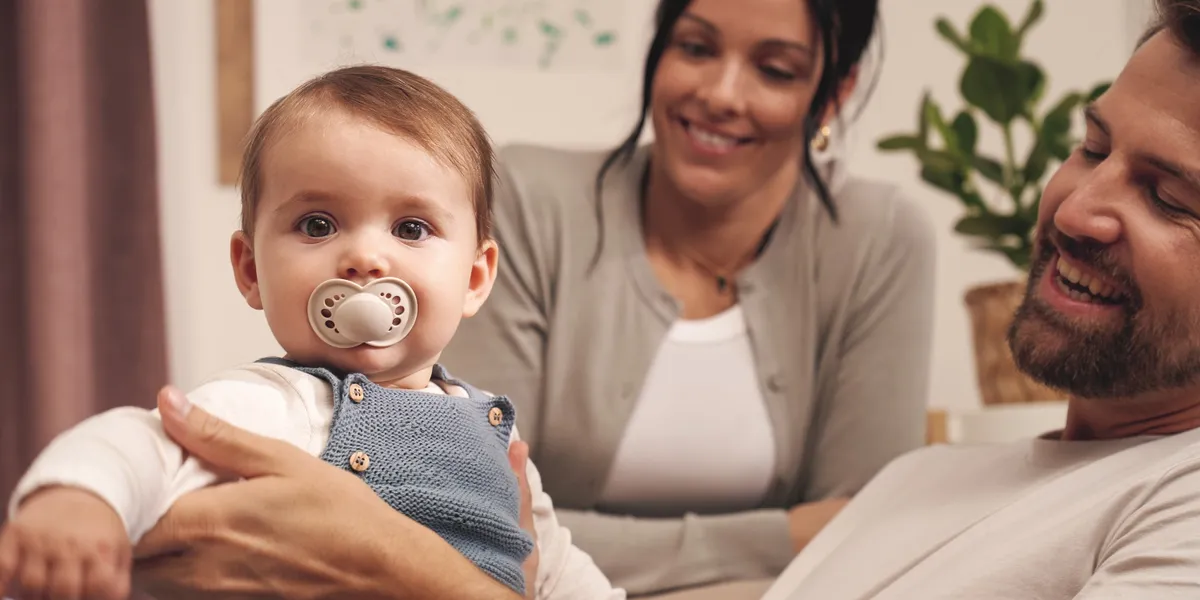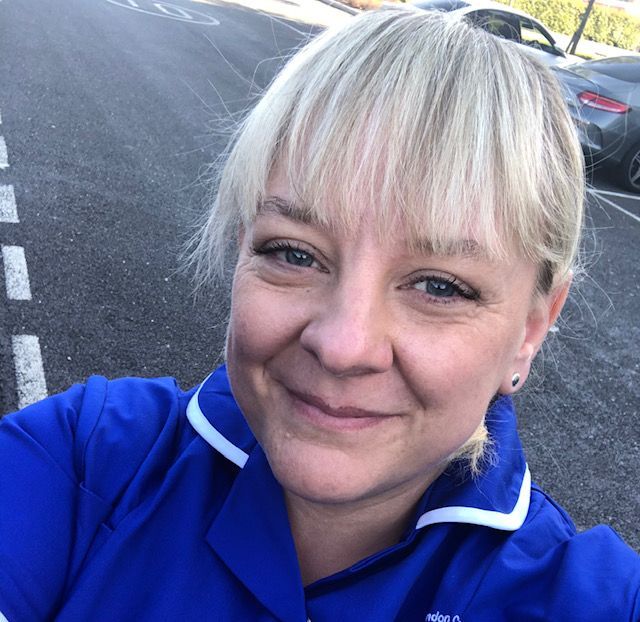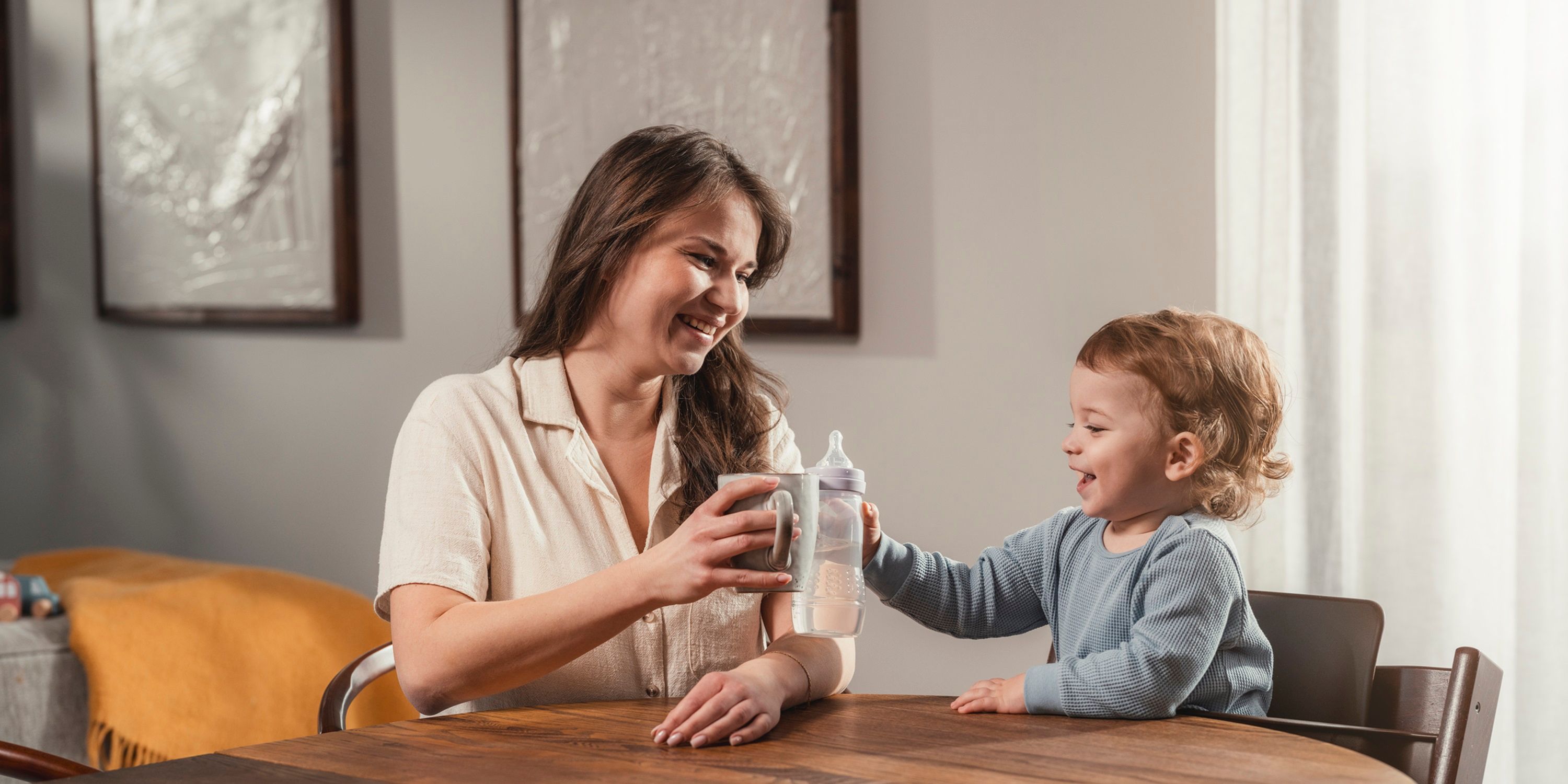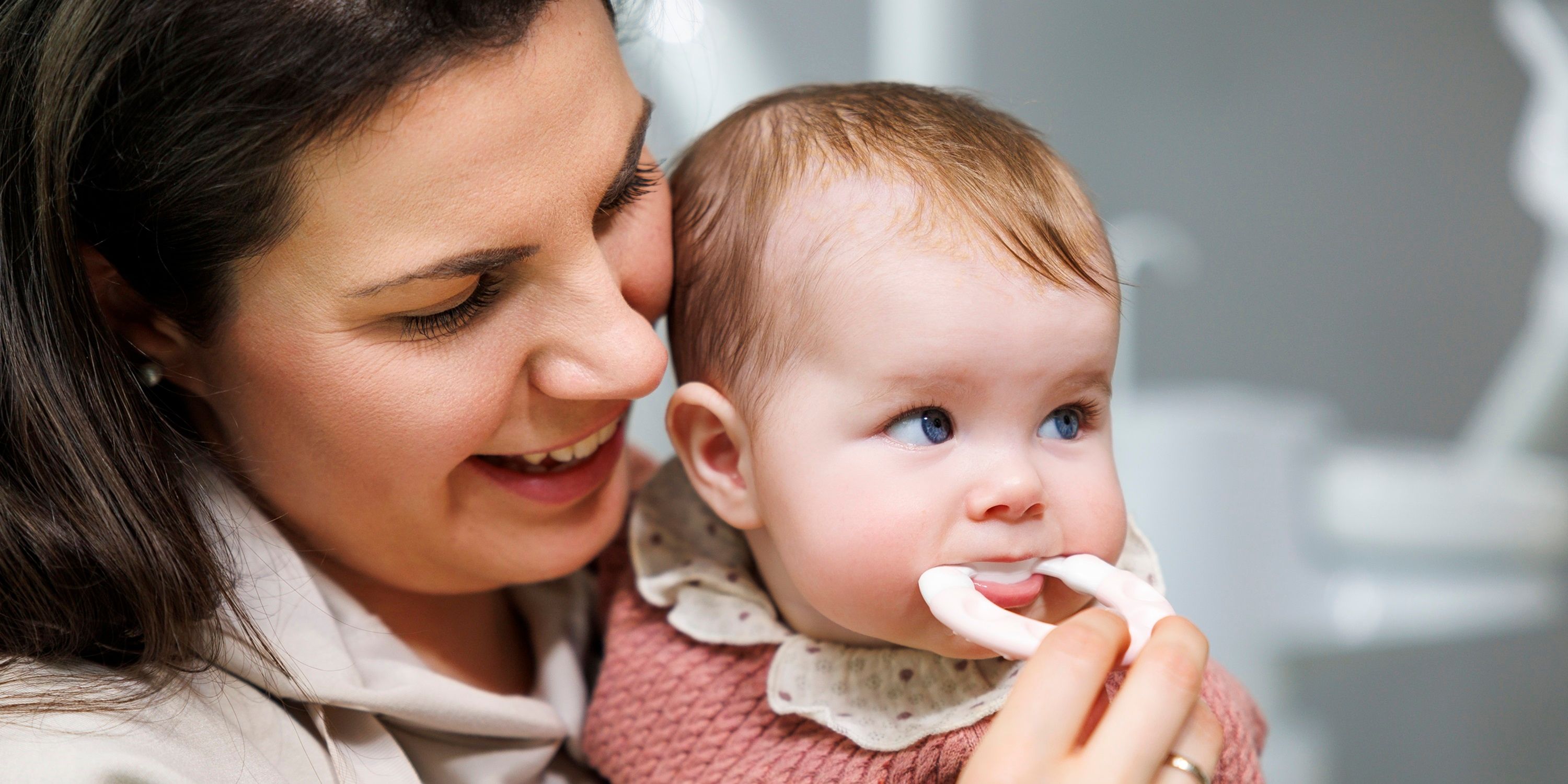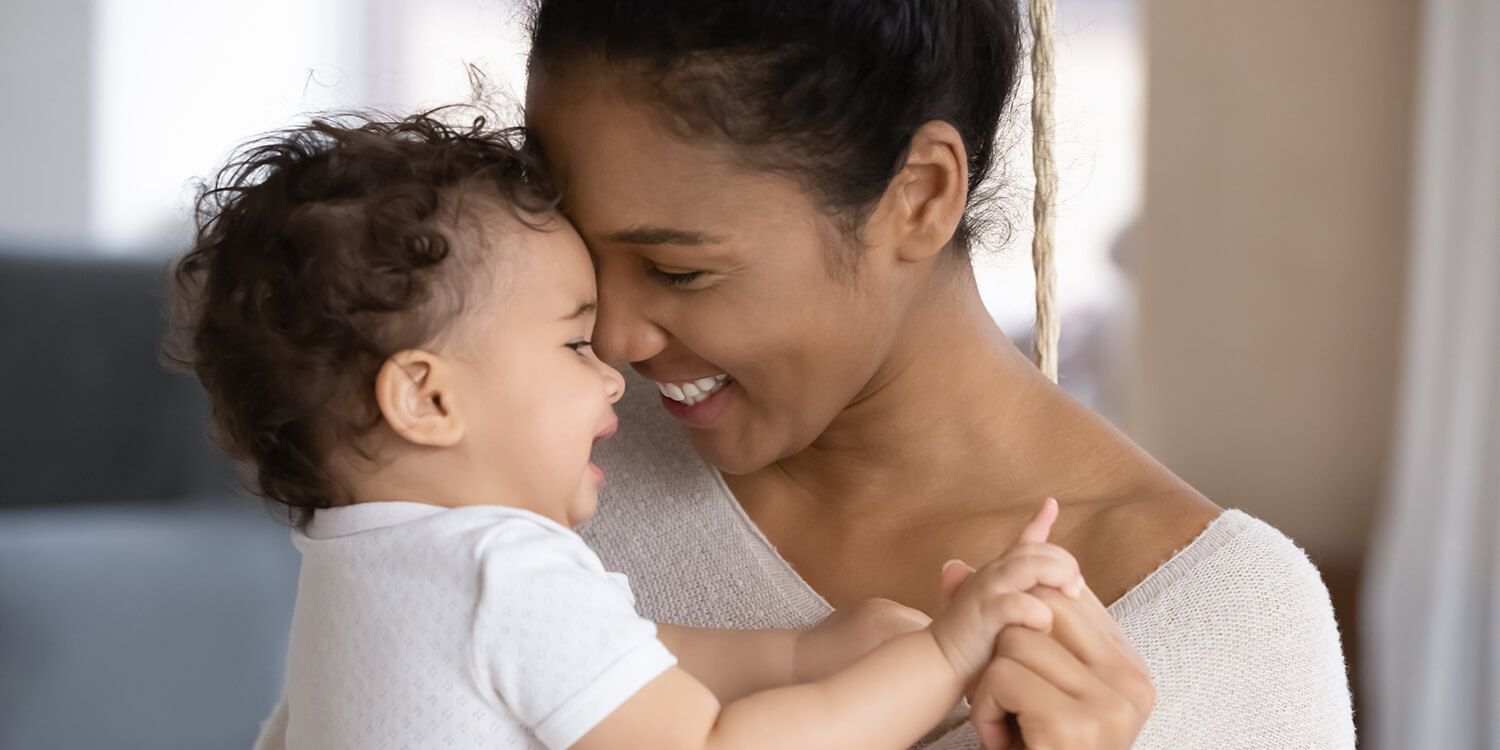Your baby’s brain doubles in size during the first year of life. Within this period, certain brain cells are activated by all the experiences your baby has. These are already present at birth and are waiting to be stimulated by interactions. This also explains why lots of loving interaction, touch, movement and much more are so important for brain development - in the first year and beyond. MAM expert and midwife Claire Cripps explains how you can support your baby’s brain development during their first months of life.
Happy first year - happy future
The billions of brain cells your baby has need to be nurtured in order for them to connect and create memories. When babies experience a lot of love and empathetic communication in the first year, this forms an important basis for being happy, having stable relationships and being able to learn better in the future.
Cuddling promotes brain development
First things first: you can't "spoil" your baby with too much love. Cuddling, kissing, holding, responding to crying – every positive interaction promotes brain development.
Talking and Singing
You don't need expensive toys: Your face, your voice, and your hands are all your baby needs to be content and develop their own communication skills. Don't be afraid to make funny noises, to talk or to sing to them because the sound of your voice is reassuring to baby and shows them your affection. Talking and singing to your little one strengthens your bond and is also supporting them in developing crucial early life skills. For children, playing and learning are simply the same thing.
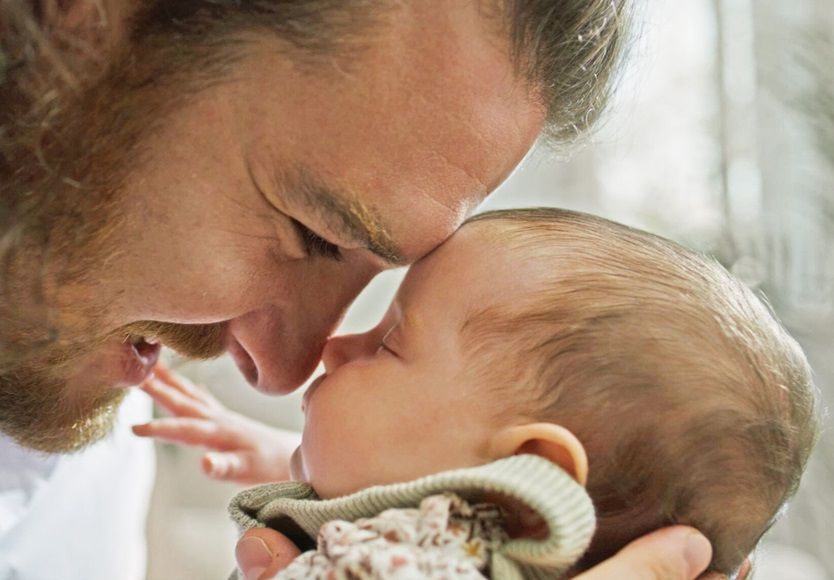
Promote simple shapes
In order to learn or to promote development, it is important to not overstimulate your baby . Shortly after birth, for example, babies only recognize rough patterns in black and white. They also cannot yet perceive subtleties in facial expressions, but can only clearly see rough structures such as eyes and mouth. If you take this natural development and framework into account, you create trust and support development. In the beginning, it is sufficient to look at black and white pictures or to open and close the mouth wide. This is exciting for your baby, even if it may seem boring for you! By simply letting your baby take part in your everyday life, he or she will learn to understand the world around them better and to develop further. Over time, colors, different shapes or textures will become interesting.
Reading to your baby from the first day
Your baby already knows your voice from the womb - hearing it again "outside" is therefore extremely reassuring. Babies also learn many important things about their mother’s voice, even if they do not yet understand the content, such as the speech melody. Reading aloud and interacting together help to create a good basis for healthy brain growth. In general, reading, speaking and singing together strengthen the bond between parents and children, trust and further independent language development. As mentioned, we recommend black and white books for the beginning, since these kind of patterns are easier for babies to see.
Create joyful memories
With so many ways to support your child, parents may feel overwhelmed. But mom and dad can relax: lots of loving, playing, cuddling, laughing, cuddling, singing and talking - in other words, all the things that parents enjoy doing anyway - are the most important things for baby's brain and its healthy growth. The more you experience together, the more neural connections are created, or in other words: beautiful memories are created. And that, after all, is the main thing.















